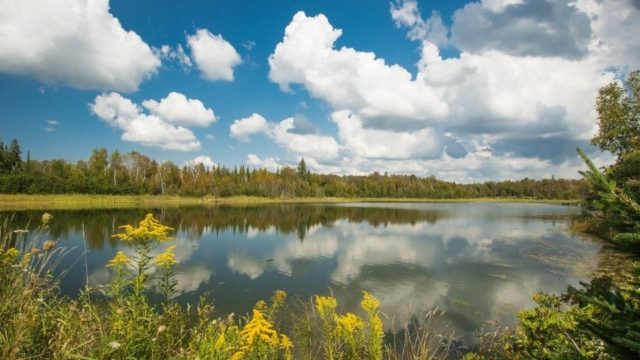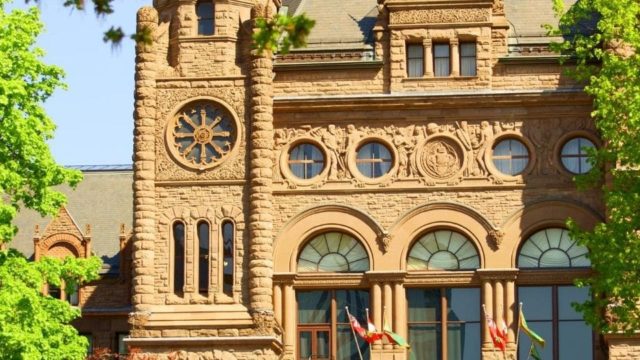As the third wave of the COVID-19 pandemic ravaged Ontario, cases ballooned and ICU beds filled up. Even in the midst of this crisis, the Ontario government ignored the advice of experts to implement better protections and paid sick days for frontline workers who have been among the hardest hit by the pandemic.
The director of Ontario’s COVID-19 scientific advisory table, Dr. Peter Jüni, was so frustrated with the government’s pandemic response, he said he considered stepping down from his post, telling CBC’s As it Happens: “You cannot control a pandemic by political considerations … Compromises between short-term political gain and appropriate public health measures will hurt everybody, including the economy.”
This continues a disturbing trend in Ontario where policy recommendations grounded in science fall to the wayside in the face of competing economic and political priorities.
Recent years have seen the Ontario government erode environmental legislation piece by piece, ignore science, and appease developers at the expense of nature and the long-term wellbeing of Ontarians. These decisions have largely happened behind closed doors and without proper public consultation.
Pandemic ‘recovery’ through environmental destruction
This month, Ecojustice was in court on behalf of Greenpeace Canada and the Wilderness Committee to challenge Bill 197, also known as the COVID-19 Economic Recovery Act.
The lawsuit alleges the Ontario government continued a pattern of illegal conduct when it hurriedly passed Bill 197, which makes major changes to the province’s Environmental Assessment Act and Planning Act, without public consultation as required by Ontario’s Environmental Bill of Rights.
Bill 197 is already having real world consequences. The province will be allowing highways as long as 75 kilometres, or from Brampton to Oshawa, to be completed without a full environmental assessment, as well as massive expansions of sewage treatment plants — all in the service of sprawl. Under the expanded Minister’s Zoning Order (MZO) powers in Bill 197, the government can allow development to evade vital environmental protections for wetlands, forests and key habitat.
It is worth noting that in July, a week before the Ontario government introduced Bill 197, the UN Environmental Program released a report showing there is a scientific imperative for policies that protect and restore our ecosystems as a preventative measure against future pandemics.
If the law doesn’t fit — change it
In another sneak legislative attack on environmental protections, the Ontario government passed a bill called Supporting Broadband and Infrastructure Expansion Act, Bill 257. This bill allowed MZOs to override key provisions of Ontario’s Planning Act.
Because of Bill 257, projects that have a MZO will no longer be subject to Ontario’s fundamental planning principles — including the protection of the environment and resources. This leaves wetlands, and natural features that used to be protected vulnerable to the whims of government.
Some provisions of the bill appear aimed at legitimizing an unlawful decision from last year by the Minister of Municipal Affairs and Housing to greenlight the destruction of a significant part of the Lower Duffins Creek coastal wetland complex.
Lower Duffins Creek was deemed “provincially significant” back in 2005. This protects the wetland from development or alteration. In October 2020, before Bill 257 was passed, the Minister authorized an MZO that would see the wetlands bulldozed to make way for an Amazon warehouse.
Ontario’s wetlands play a vital role in protecting biodiversity, wildlife habitat, water quality, and flood mitigation. The government’s decision to open the area to develop was met with swift opposition from scientists, environmental groups, and the public.
Environmental Defence and Ontario Nature, represented by Ecojustice, are challenging this MZO in Divisional Court. In March 2021, Ecojustice brought a motion for a stay, and in response to that motion Pickering Developments agreed to halt the project until a hearing of the Judicial Review application takes place. On the eve of the motion, Amazon announced it was dropping the site from contention for its new fulfilment centre. The Minister recently committed to revoke the MZO.
Young Ontarians fight back
There is a clear scientific consensus that to avert climate catastrophe, governments must do much more, much faster to reduce greenhouse gas emissions.
Instead of strengthening climate action, this Ontario government cancelled the province’s cap and trade regime and repealed what were relatively progressive 2020, 2030 and 2050 greenhouse gas emissions targets, replacing them with a single, weaker 2030 target.
The move compelled seven young climate leaders, backed by Ecojustice, to launch a lawsuit. In Mathur et al. v. Her Majesty in Right of Ontario, the applicants allege the Government of Ontario violated the Charter-protected rights of all Ontarians to life, liberty and security of the person when it weakened the province’s climate targets, effectively setting the province on the path to climate chaos.
In March, the youth prevailed over a second attempt by the Ontario government to dismiss the Mathur case. The case will now proceed to a full trial on its merits.
No time to waste
In a report published by Friends in Conservation Science, top scientists warn that people are failing to grasp the magnitude and urgency of the climate and biodiversity crises. The stated purpose of the report — which cites 150 key studies, including the 2020 World Economic Forum report that named biodiversity loss as one of the top economic threats globally — is to awaken leaders to the true state of the world and compel them to act.
The alarm bell has rung and Ontario’s elected representatives must listen up: A failure to heed the science will be an Ontario whose eroded environmental protections expose people, ecosystems and the climate to irreversible harms.
This article was originally published by The Lawyer’s Daily (thelawyersdaily.ca) a division of LexisNexis Canada.




